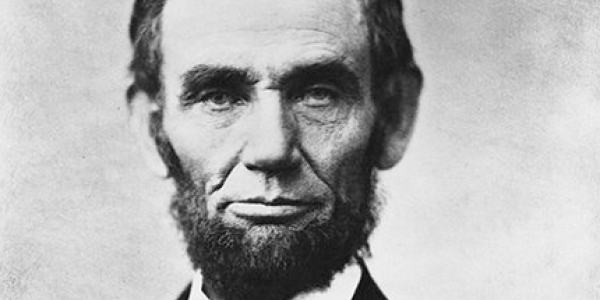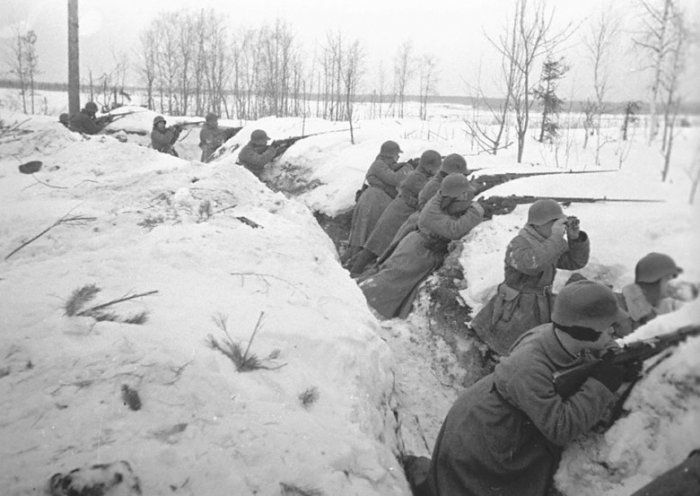Factualizing History
“The time is coming when the establishment view of the 20th century is going to be shaken very badly. You see people don’t just come up with crazy ideas…Yeah, I’m going to massacre all the Slavs. I’m going to massacre all the Jews. I’m going to massacre the bourgeois and so on. There is a cause and effect involved here. And the first great blood letting and the first total destruction of rules of morality was the first world war. Here’s what one historian says. “The victimized youth of Germany of the first world war, the ones who survived the starvation, were to become the most radical adherents to Nazism. Understandable, they were almost starved to death as little kids.” – Ralph Raico
The term “revisionist history” has gotten a bad name. This is mostly due to the opposition of those who attempt to change the facts of history to their favor or to fit their narrative – with a false history. Rightfully so, it is not right for groups, governments, and social movements to bend the truth so far that they end up teaching lies. But the term revisionist history has also gotten a bad name on purpose. Because those who have controlled the flow of information and the narrative of history – want the thread of history to remain as it is – as they have told it and passed it down – whether true or not. They don’t want their decades or centuries of misinformation and propaganda to go to waste.
You see, there is another kind of revisionist history. The revisionist historians in this tradition are not trying to falsify history to fit their aims. They are practicing real, true, authentic investigation – to uncover, without a bias or an ill intended aim in mind – the most accurate story they can about events that took place in the past. As opposed to the common belief, they are not making things up to fit their agenda. They are exposing the truth – and along the way, uncovering agendas, plots, and ill deeds – that were passed down to us as what we think we know as history. As the common phrase goes – the victors write history. Well its not just victors in some kind of conflict. It is the mainstream, the powers that be – those who have a paradigm to maintain and have the ability through government and media – to keep it going. States do not give up power. They will do whatever it takes through propaganda and wars to hold their power.
So lets jump into some examples so you get an idea of what I mean. It could be anything. Think of anything you know – open up your mind – get rid of your pre-determined view points – and see that things might be different than they seem. Down at the bottom you will find some links with videos, articles, and books where you can find more information.
1. Abraham Lincoln was in fact a racist. The US government didn’t start the war to “end slavery”. They changed their public stance half-way through the war in order to drum up popular support – and so it has been passed down ever since that it was a just war from the beginning – led by the great emancipator, Lincoln. In reality, they were merely trying to maintain control, power, and territory. Lincoln, in his own words, didn’t care about stopping slavery. He even suggested that slaves be shipped off to new territories, or just back to Africa, to rid the country of them.
I think this is a big one. Lincoln has become one of these huge parts of state mythology – almost deified. He’s used as an ongoing piece of propaganda that tells us that the state is good, presidents are good, and that if Lincoln did it, it’s okay. So since he’s viewed as this god like figure, all of a sudden state apologists have a ready excuse when presidents since him have jailed dissenters, silenced journalists, and committed other violations against individuals. Lincoln’s regime marked the turning point for governance in this country – from a limited hands off, let people be approach – to a centralized, all powerful state in charge of all things. And since this is the case it is so very important to statists to propagate Lincoln glorification – to tell us that anything he or the government did then or since is good – since it was honest Abe doing it.
2. FDR knew the Japanese were about to attack Pearl Harbor. The federal government wanted the attack as an excuse for getting into the war, without being the aggressors. They had already tried goading the Germans into attacking, but they wouldn’t bite. So they directed their attention to Japan, doing everything they could to provoke an attack. And correspondence records show they specifically knew the details about the “surprise” attack.
3. The Japanese were attempting to surrender before the US government dropped nuclear weapons on civilian targets. Working through Russia, they came up with terms for peace, but the US government didn’t quite like these terms. The US government felt it was more important to show their world power and their new weapon, by killing hundreds of thousands of civilians – than to peacefully end one front of the war.
4. President Hoover was not some kind of “free market” champion. In fact, Hoover and Roosevelt had been working hand in hand together in government since WWI. When the depression began, the common myth is that Hoover was this do-nothing republican who idly stood by while things got worse. Well in reality Hoover began many massive programs – that FDR only later ratcheted up into even larger stimulus programs. Liberal statists like to think FDR “fixed” the economy. All the efforts of the federal government to end recessions only make them worse. Recessions and depressions are market corrections to misallocations in the economy. Rational savings and investment grow economies. And conservative statists like to think WW2 fixed the economy. This also isn’t true. Wars only divert and destroy wealth. Breaking windows doesn’t create prosperity. The economy started to turn around only after the war when depression and wartime price controls, regulations, etc. were marginally relaxed and the economy was allowed to function more normally.
5. It is commonly believed that the impetus for the US government entering WWI was the evil Germans sinking an unarmed passenger ship, the Lusitania. Here is the truth…it was a British ship – Churchill had a hand in the entire thing – it was shipping a huge supply of munitions for the war, thus it would be fair game to sink. The Germans knew it was carrying war materials, so before hand they went so far as to put out newspaper ads in New York City warning Americans not to get on that ship. But with Churchill’s urging and Wilson’s desire to get into a war – the US government downplayed these warning and assured the country that people would have safe passage aboard the Lusitania.
6. Nazism, Mao’s China, the Bolshevik revolution, and a century of war, socialism, and propaganda were only made possibly because of a chain of events set into action with the utter and unnecessary disaster of WWI.
7. As Randolph Bourne quipped – “War is the health of the state”. There has been massive propaganda by modern centralized states for over 150 years. This propaganda has kept the people scared, united against the “enemy”, and given an excuse to governments to grow larger – in the name of security. During WW2 people set up bomber watches on the rooftops of buildings in the northeast. The idea was spread that an attack could happen any day. And we’re talking about an enemy who was over extended at the beginning of the war, who had met total failure in attacking Russia, and who couldn’t even invade across the English Channel.
8. Lets go way back with this one. The New Testament of the Bible was formally put together around 300 years after Jesus’s life at the Council of Nicea. The participants picked and choose what they wanted to be in the book. They forged a very specific narrative. They essentially created Christianity as we know it today. Any accounts of Jesus’s life that didn’t fit with their message were left out.
9. Something a little less serious, but still a historical myth that can be set straight. The Wright Brothers were not the first to fly a plane. Other people had been making motor driven manned planes for some years – some successfully flown for distances measured in miles, not in feet like the Wrights. One of these was a German who lived in America, named Gustave Whitehead – but there were others as well. The difference is the Wright brothers were after fame and glory and they planned on publicity. Whitehead and others were more interested in the science, the flight, and personal achievement. The Wright brothers made sure they notified the press and that they had a man there with a camera. And with that, they were the ones who went down in history as the first to fly.
- Rethinking Churchill
- Recession and War
- US Government Benevolence
- Wilson and WWI
- The Real Lincoln
- Rethinking Lincoln
- Century of War
- Council of Nicea
- Depression of 1921
- Meltdown – causes of the current economic problems
- Why 2008 should have surprised no one
- FDR’s WW2 Policies
- Pearl Harbor
- More Lincoln
- Myth of War Prosperity
- War and the Leviathan State
- Intro to Revisionism
- Revisionism and the Historical Blackout
- Revisionism For Our Time






